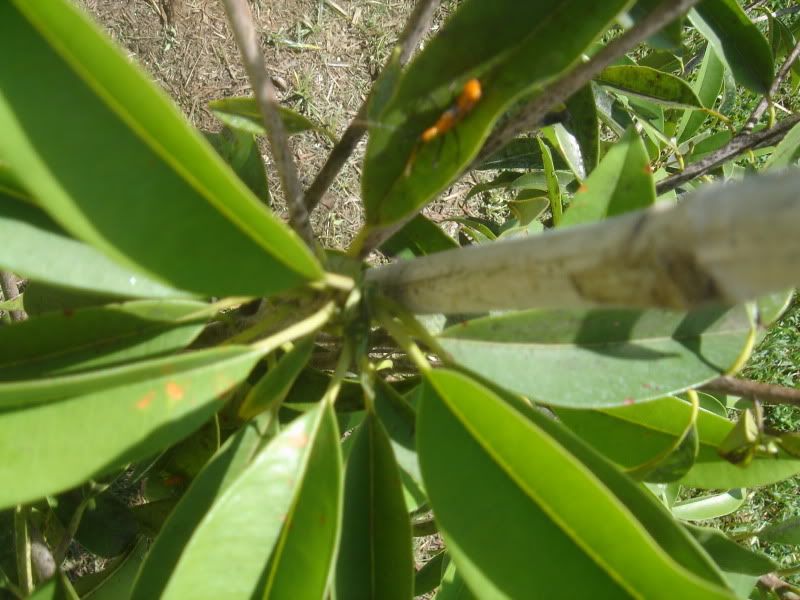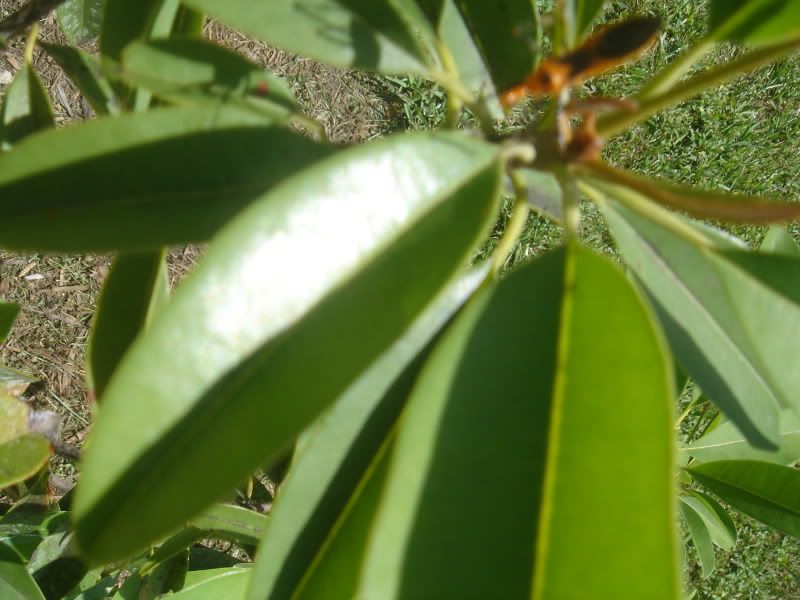
 |
Re: Oil and Water.(Conventional vs. Organic)
Quote:
|
Re: Oil and Water.(Conventional vs. Organic)
Independent studies show that it is indeed toxic to humans, mammals and amphibians. Monsanto actually lost a French lawsuit over false advertising the safety of this product.
|
Re: Oil and Water.(Conventional vs. Organic)
Quote:
in 2 hours: 1/2 remains in 4 hours: 1/4 remains in 6 hours: 1/8 remains ... in 24 hours: below toxic levels for all of the above. Responsible application is the key. And for heavens sake, don't drink it! Monsanto's patent for glyphosate ran out decades ago. You can go to an independent nursery and buy a quart of generic glyphosate for 1/4 to 1/2 the price of the same quantity and concentration of Monsanto's "Roundup" product -- and without all the additives. There is even a super-Roundup on the market now from Monsanto that contains glyphosate plus a brush killing chemical used by Ortho in years gone by. |
Re: Oil and Water.(Conventional vs. Organic)
Quote:
Courts decisions are not always the best source for accurate info--you have non-professional people making emotional decisions. |
Re: Oil and Water.(Conventional vs. Organic)
|
Re: Oil and Water.(Conventional vs. Organic)
Quote:
Quote:
|
Re: Oil and Water.(Conventional vs. Organic)
Quote:
|
Re: Oil and Water.(Conventional vs. Organic)
I am correcting a misleading statement made and later defended by SBL, how exactly is that equivocating? I have provided proof and can provide more if need be. We are talking about the product "Roundup" are we not?
|
Re: Oil and Water.(Conventional vs. Organic)
Quote:
|
Re: Oil and Water.(Conventional vs. Organic)
Guys/Gals, why bother with roundup at all? I apply a thick layer of mulch around my banana plants and pull out the very few weeds that appear by hand. You don't even need to buy that much mulch since you can use the banana plants themselves! Once your plant produces bananas, you will have cut it down anyways, so why not use it as mulch?(assuming it wasn't infected with anything) I have run out of people to give my sword suckers to, so I chop those up and toss them on the pile too. Once your "mulch" is about 4 inches thick, you should see very few weeds.
As for other plants and trees, well mulch does not work for all. While you can use it for pretty much any plant, it will need to be at least 8 inches away from the trunk in most cases. In those cases, I pull weeds by hand every few weeks... or I get lazy, let the weeds grow.. and then get inspired one day and go pull them all out at once. :) I haven't experienced any ill effects yet. Now, a few questions if y'all don't mind.. I've tried several pesticides and am not 100% sold on any of the ones I've tried.(Organocide, Bonide orchard spray, malathion oil, parifine, and a few others) --What pesticides would you guys recommend for fruit trees with fruit on it?...how about while the tree does not have fruit on it?...is there a difference?.. is there an all in 1 product I can rely on, or would I have to use a combination of two or more products? Im sorry if Im taking the thread off topic.. :) |
Re: Oil and Water.(Conventional vs. Organic)
Quote:
Quote:
Quote:
|
Re: Oil and Water.(Conventional vs. Organic)
Quote:
Quote:
As for the half life numbers: Quote:
|
Re: Oil and Water.(Conventional vs. Organic)
Quote:
I'll send you an email over he weekend. If I don't send it by Saturday, drop me an email and let me know. I have a product called Premise. It is a systemic insecticide. I know it is used on Pecans and ornamentals. I need to look up the labeling and let you know. It is great stuff, very effective, once a year app and minimal danger to beneficials. Quote:
|
Re: Oil and Water.(Conventional vs. Organic)
Quote:
|
Re: Oil and Water.(Conventional vs. Organic)
Thanks for the link on Roundup toxicity to human cell lines (not really the same as toxicity to humans). As Richard said earlier, it does appear to be linked to the other ingredients in the formulation. I did use the name roundup when I mentioned the low toxicity, I should have been more specific--the data I was thinking about is for the pure product, glyphosate for which the toxicity (to intact mammals) is lower than that of table salt.
Quote Mario: "I've tried several pesticides and am not 100% sold on any of the ones I've tried.(Organocide, Bonide orchard spray, malathion oil, parifine, and a few others) --What pesticides would you guys recommend for fruit trees with fruit on it?...how about while the tree does not have fruit on it?...is there a difference?.. is there an all in 1 product I can rely on, or would I have to use a combination of two or more products?" What fruit and what problems? |
Re: Oil and Water.(Conventional vs. Organic)
There are spiders all over my yard. Odd, small colorful ones with somewhat square bodies and tiny legs. They don't really seem to harm the fruit(except for damaging some flower clusters in my mango trees)...it's just a real pain to get around my yard while trying to avoid getting "caught" in their webs.
The bugs I know I need to watch out for are aphids, ants, mealy bugs, and caterpillars. I see caterpillars quite often, but simply pick them off, so that isn't a big issue. However, if there is a spray that will prevent butterflies from landing on my trees in the first place, that would be great. Now, I have a few different trees, so I'm not sure if one spray works for all. Any help is appreciated.. -Citrus- my primary concern.. They have lots of leaf miner damage and have lost a few trees to greening(transmitted by insects). -Mango trees - I use a combination Liquid Copper Fungicide and Sulfur to control anthracnose and powdery mildew. They don't have many bugs bothering them other than the above mentioned spiders. I've rarely sprayed them with anything to try and kill the spiders, but it hasn't worked. -Sapodilla/zapote/nispero trees- both are crawling with ants! I blast them with some water every other day. Oh, and they had several of these insects on them:   Any idea what they are? Friend or Foe? -Jaboticaba trees- trouble free -Banana trees- trouble free -Fig tree- occasional leaf rust...some tiny bugs stuck on the fruit themselves sometimes, but not often. Usually pretty trouble free. -Atemoya tree- leaf damage.. something is eating some of the older leaves. I have yet to spot the culprit -Avocado tree- trouble free -Cacao- same as 'atemoya' I also have a piper nigrum vine that has been relatively trouble free. Some leaf damage, but not much. TX.. I have never used systemic insecticide since I don't think they are good for tropicals, but I would love to see the info. My fruit trees are listed above. |
Re: Oil and Water.(Conventional vs. Organic)
Quote:
Quote:
Quote:
The History of PCBs - When Were Problems Detected Agent Orange - Wikipedia, the free encyclopedia Richard, from DOW Chemical: Quote:
Quote:
TX_Crinum, thank you for clarifying was I was attempting to say to Richard. |
Re: Oil and Water.(Conventional vs. Organic)
Quote:
Momoese--the point I was making about cell culture toxicity is that in an intact organism, there are many defensive processes not available to cells--uptake, elimination, detoxification for example. If cell culture toxicity were a viable substitute for animal toxicity test, it would make a lot of people happy--including me. If you have information on what ingredients in Roundup are responsible for the toxicity I would be interested. |
Re: Oil and Water.(Conventional vs. Organic)
SBL, it may not be what ingredients are individually responsible for the toxicity, likely the combination of ingredients that create the problem. Mostly the surfactants such as polyoxyethyleneamines (POEA) (which by themselves are said to be more toxic than Glyphosate) are mentioned along with a few other ingrediants. The exact ingrediants are not known.
Quote:
Then there is this. Quote:
It's really bad for amphibians. There is plenty of data on that. http://www.pitt.edu/news2009/Roundup.pdf The only actual human tests that I know of were conducted in Japan and resulted in deaths and suicides from direct ingestion of the product. How they got people to drink it is beyond me. |
Re: Oil and Water.(Conventional vs. Organic)
Again, thanks for the links. The paper on the toxicity to amphibians is a good paper and clearly shows the formulations containing POEA are highly toxic to amphibians.
The study suggesting links with Lymphoma certainly raise concerns and should remind all of us that there are many factors to consider before we call a pesticide "safe". No acute toxicity, does not mean there are not long term effects, and the so called "inert ingredients" are not always inert! It is not clear if the effects are comming from glyphosate or from the "inert ingredients", but I will certainly handle it more carefully. |
| All times are GMT -5. The time now is 07:26 PM. |
Powered by vBulletin Version 3.6.8,
Copyright ©2000 - 2025, Jelsoft Enterprises Limited.
All content © Bananas.org & the respective author.